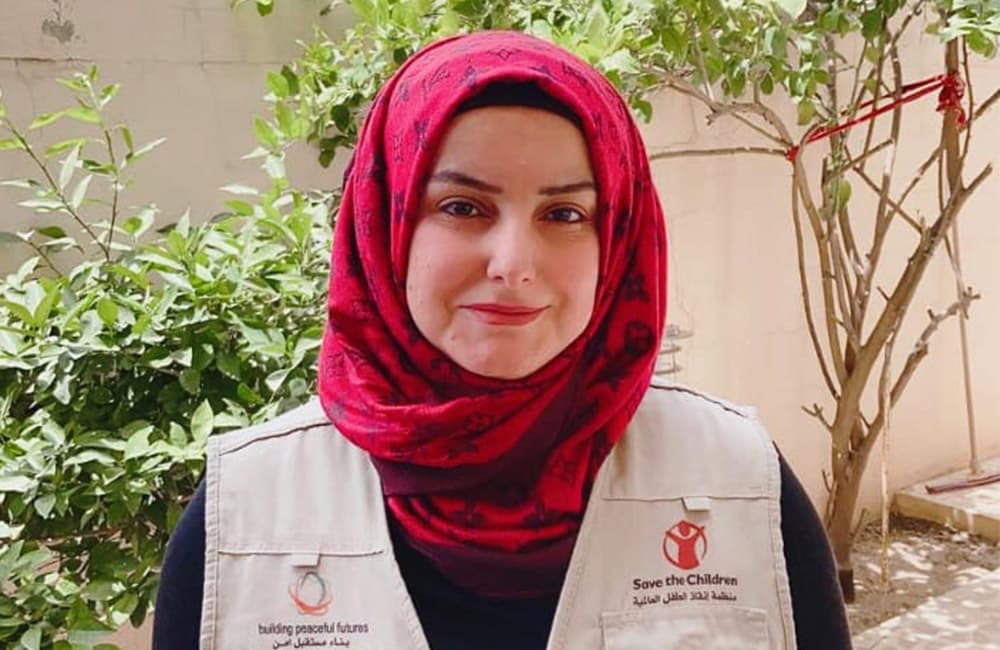This month marks the five-year anniversary of one of the deadliest airstrikes in Iraqi history. In the early hours of 2 June 2015, a Dutch fighter plane flew across a clear night’s sky above the city of Hawija and dropped bombs on an ISIS-held munitions plant.
The damage to the area was vast. Tragically, 70 people were killed, predominantly refugees taking shelter in buildings surrounding the depot.
Today, communities in Hawija are still reeling from both ISIS’s cruel reign and the subsequent efforts to eradicate ISIS from the region. The vast destruction caused by the conflict has led to an ongoing lack of basic services, as well as limited education and employment opportunities, which has meant that families continue to struggle as they rebuild their lives.
In Iraq, Save the Children leads the Building Peaceful Futures project – a consortium of INGOs dedicated to helping families in conflict-affected cities of Hawija and Sinjar. Alongside Care International, Humanity and Inclusion (H.I), and the Norwegian Refugee Council, Save the Children is striving to support some of Iraq’s most vulnerable families after years of conflict.
While Iraq has not yet been inundated with COVID-19 caseloads (at time of writing there were 34,502 cases with 1,251 deaths) the movement restrictions imposed by governments and local authorities to stop the spread of the virus has hindered our ability to access families in Sinjar and Hawija. Further, the limitations of the few remaining health facilities in the areas, has left all members of the Building Peaceful Future project concerned that these communities will not be prepared if COVID-19 does spread at full force.
Huda is Save the Children‘s WASH Officer in Iraq. She leads the consortium’s Water and Sanitation programming in Hawija. She discusses why our ongoing work is so important and how the Building Peaceful Futures project has changed its approach to protect communities from the imminent threat of COVID-19.
“Before ISIS, it was peaceful in Hawija. People could travel at night; children could play in the streets. There were still difficulties – conflict and violence were still a concern for us, but it didn’t monopolise our every thought the way it did when ISIS invaded.
When I started working in Hawija, I compared the lives of my children to those Save the Children is helping. I saw that my children’s life was so much better. There was child recruitment happening in Hawija. There is no access to education in Hawija, which affects families as it leads to a lack of jobs, which means there is no income coming into households.

Huda, a Save the Children‘s WASH Officer in Iraq
Children in Hawija have seen some terrible things under ISIS. They’ve seen their parents being killed; their houses being bombed - so many things that will stay with them for years to come.
Save the Children, through the Building Peaceful Futures project, began supporting families in Hawija with cash distribution, to give the most vulnerable families money to buy essential items. Many families were left with nothing. They had lost their jobs and had their houses burned to the ground.
We then developed WASH Community Committee. We invited a cross-section of community members to discuss what water needs and get input from community about their immediate water-related needs. We hold meetings every month, and we have started rehabilitating water networks and water facilities in schools.